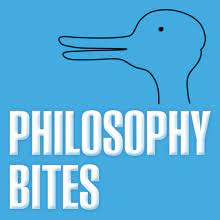
In this episode of Radiolab’s Border Trilogy, titled “What Remains,” the focus shifts to the migrant perspective of the US-Mexico border. Listeners should be aware that this episode contains graphic descriptions of human remains and may not be suitable for younger audiences. The episode explores the challenges faced by forensic anthropologists, the human toll of border policies, and the ongoing issues that persist from the Trump era to the Biden era.
Forensic anthropologists in Arizona are facing an overwhelming number of unidentified migrant bodies that are brought in for examination. The remains found often show evidence of animal scavenging, such as vultures feeding on the bodies. Dermested beetles are also found eating dry hard tissue. These findings highlight the difficult and heartbreaking work that forensic anthropologists undertake to identify and provide closure for families.
Anthropologist Jason De Leon and his team discover a decomposing body of a woman in the desert during an experiment studying how bodies decompose in the harsh desert environment. This discovery raises questions about the human toll of border policies and the dangers faced by migrants attempting to cross the border. The Colibri Center for Human Rights plays a crucial role in identifying unidentified migrant bodies and working with the medical examiner’s office to provide answers and closure to families.
Maricella Aguipoya, a 31-year-old Ecuadorian woman, is found dead in the desert. Reporter Tracy Hunt meets with Maricella’s brother-in-law in New York City and learns about her life and struggles. Maricella was a serious and determined person who wanted a better life and education for her children. Despite the risks and challenges, she made the difficult decision to embark on the dangerous journey to the US. Her story sheds light on the sacrifices and aspirations of many migrants seeking a better future.
Border crossings at the southern border fluctuate due to various factors such as weather, political situations, and smuggling networks. The Biden administration claims their deterrent strategies are effective in mitigating border crossings, but the issue of immigration poses real problems and challenges for the American people. The number of people crossing the border is influenced by push factors in their home countries and the demand for their labor in the United States.
The current immigration system is broken and inhumane, leading to family separation and detention centers. The Calibri Center for Human Rights seeks to change the narrative around immigration and provide legal representation and support for immigrants seeking asylum. Allotting visas in a way that allows for legal entry to those who want to work, regardless of wealth or education, is necessary. Bold proposals for immigration reform require a comprehensive approach that addresses the root causes and provides a path to legal status for undocumented immigrants.
This episode of Radiolab’s Border Trilogy sheds light on the complex and often tragic realities faced by migrants attempting to cross the US-Mexico border. The human toll of border policies, the challenges faced by forensic anthropologists, and the need for comprehensive immigration reform are highlighted. It is clear that the current immigration system is broken and inhumane, and solutions must be found that prioritize empathy, understanding, and the recognition of the United States’ need for immigrants.